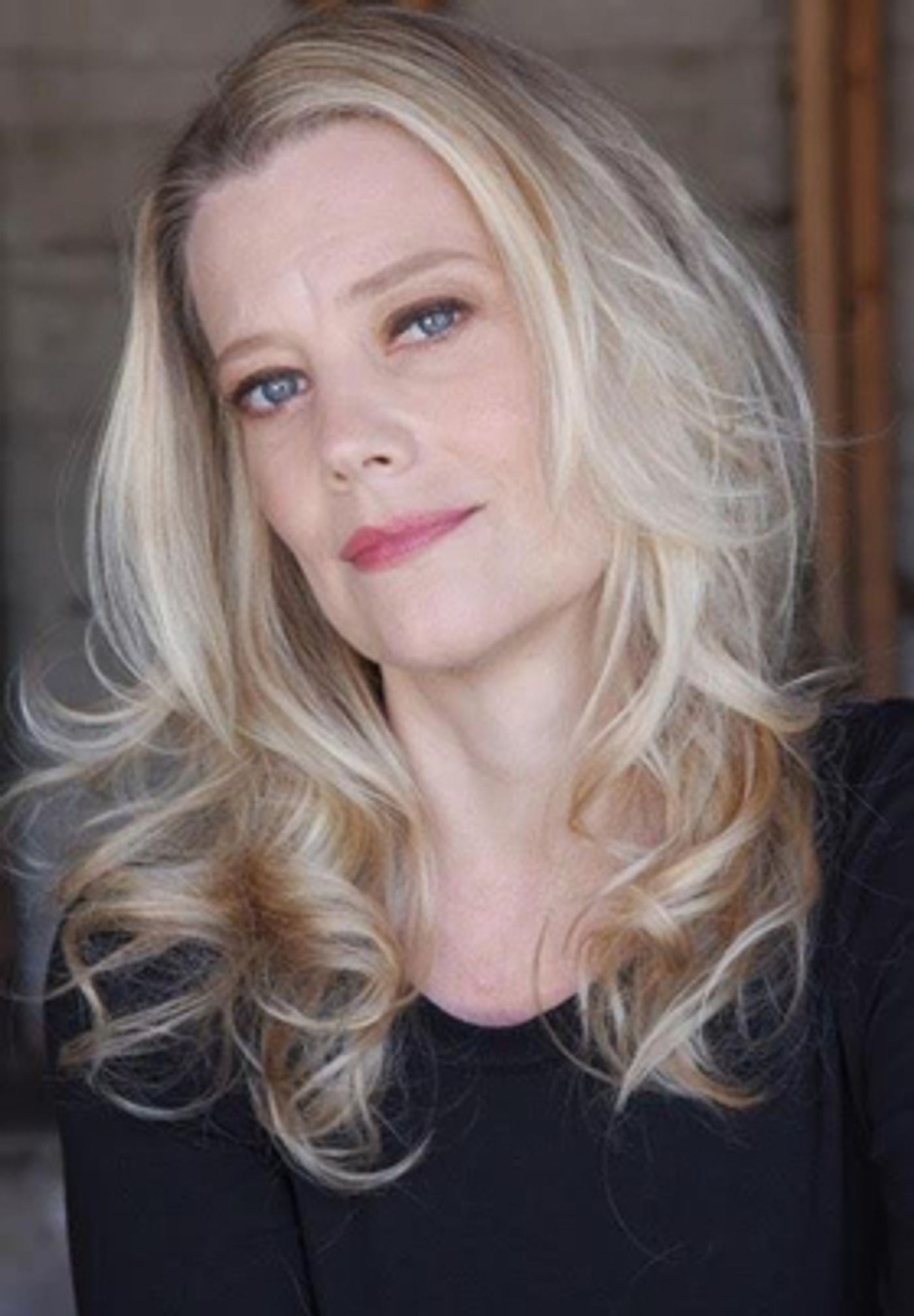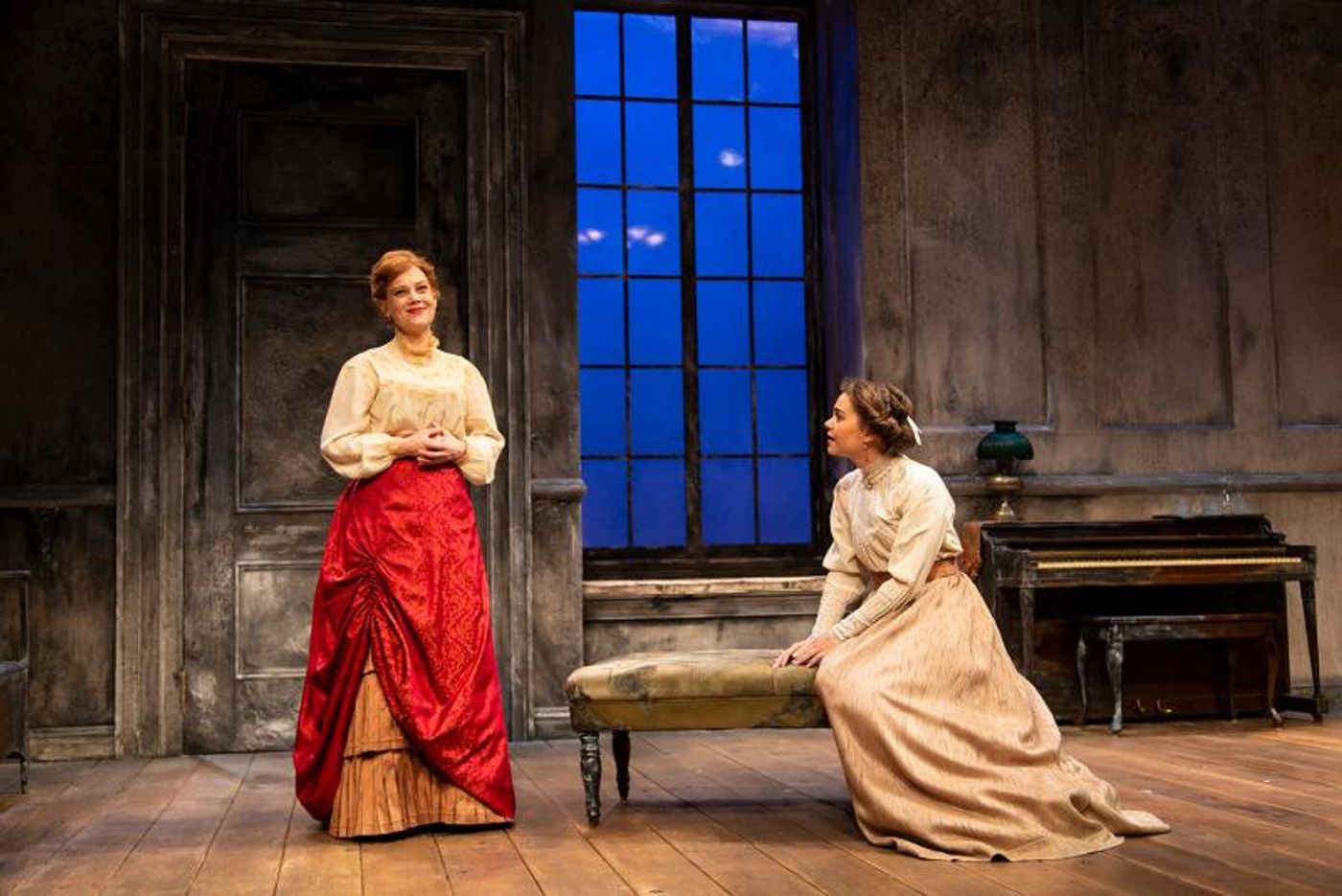Interview: Kellie Overbey in A DOLLS HOUSE PART 2 at GSP

George Street Playhouse is now presenting A Doll's House, Part 2 written by Lucas Hnath and directed by Betsy Aidem. In 2017, the play was nominated for seven Tony Awards when it was performed on Broadway and since has become the most produced play of the season in theatres across the United States. The Playhouse production, that is being praised by theatre critics and audiences, will be on the New Brunswick Stage through December 23.
Set in the 19th century, Nora Helmer returns to her family's home following a long, 15-year absence. After she abandoned her husband and young children because of a life she considered unsatisfying, no one knew anything about her whereabouts. Upon her arrival, Nora is at first met by the family's long-time nanny and housekeeper Anne Marie, who chides her about the many years she has been away. The motive for Nora's reappearance is at first unclear as her attire suggests she has been quite successful. But it soon becomes evident that she has unfinished business with her husband Torvald, business that threatens to disrupt the household. This story about a woman's rebellion against social norms is timeless. Through wonderfully written dialogue, and clever comedic moments, Hnath presents the history of the characters and their differing perspectives.
Broadwayworld.com had the pleasure of interviewing Kellie Overbey who plays Nora in A Doll's House, Part 2.

Overbey's credits include Broadway: The Coast of Utopia, Twentieth Century, "Q.E.D.", Judgment at Nuremberg, Present Laughter, Buried Child. Drama Desk nominations for Women Without Men (The Mint) and Sleeping Rough (Page 73.) Lortel nomination for The Savannah Disputation (Playwrights Horizons.) Most recent Off-Broadway: Mary Page Marlowe at 2nd Stage. Film & TV include: Imitation Girl, That's What She Said (also screenwriter), Sweet and Lowdown, Outbreak, "FBI," "Blindspot," "Blue Bloods," "30 Rock," and "The Good Wife." Kellie is the Executive Director of AisFor.org, an Eastern Principal Councilor at Actors Equity Association, and a founding member of FairWageOnStage.org.
What was the very first time you performed before an audience?
The first time I performed before an audience had to be probably when I was 13. It was a Ray Bradbury short story called The Veldt that was adapted for the stage. It was a school performance for competition. I did a lot of competitive acting in high school, forensics.
Tell us a about your education.
I went to Northwestern University, and after I graduated I moved to Los Angeles, and started working right away on TV. But I really wanted to do theatre, so I took myself to New York the following year and ended up getting my Equity card doing an off-Broadway play called The Debutante Ball by Beth Henley at Manhattan Theater Club.
From there, I was just really eager to spend as much time in New York as possible. So, I went back and forth, bouncing back and forth from coast to coast for a while, and finally ended up staying in New York when I did my first Broadway play, which was Buried Child.
I always learn from everybody I've ever worked with, and I've worked with so many wonderful artists, from directors, to actors, to playwrights. Everything has been important in its own way.
We'd love to know a little about your important work with Actor's Equity and FairWageOnStage.org.
I believe that stage managers and actors should be paid commensurate with their labor relative to the theater's ability to pay. We've been dependent for too long on the volunteerism of Equity members.
It's become part of the "cultural mythology" that what Actors (large A to include stage managers) do is for love and not money, but we're actually skilled laborers. Stage managing and acting is how we earn a living. It hurts our communities, the artistic ecosystem for the very people who produce the work which these businesses depend on not to be able to support themselves with their full-time jobs. And so, I'm eager to change the cultural dialogue around what it means to value actors and stage managers, and I'm eager to work hard with Equity, #FairWageOnStage, and our employers themselves to get those salaries up.
Tell us about your experience working with George Street Playhouse.
It's so pretty out here! It's lovely. I've really enjoyed it, and I'm excited about the new theater. I can't wait to come back and visit and maybe work in one of those spaces next time.
What are some of the challenges of your role as Nora in Doll's House, Part 2?
I've been interested to have conversations with people after the show, and have been surprised (and then not surprised) to find that some people do not like Nora, that they have problems with her life choices. That's not something I was anticipating, but I guess if I think about it, it makes sense.
It just shows me, not unlike in the play, how far we've come and yet how much farther we still have to go for there to be this egalitarian society that both Nora and I envision.
Why do you think the timing is right for theatre audiences to see A Doll's House, Part 2?
I think women's place in society is an important conversation at any time. But especially right now, given the #MeToo Movement and the fact that we're a culture waking up to how women have been treated in society up until now and in patriarchy. And patriarchy is bad for everybody, not just women, trans and non-binary people, but for men also.
I think it's an important play because it takes on this conversation and it frames it in the 19th century. But in the 21st century, we're still dealing, still figuring out our equilibrium, if you will. And it's awkward right now, so talking about it is good.
I'm fascinated with the idea that people still resist the fundamental idea of Feminism which is, of course, very simply that women are human beings. But autonomous human beings in their own right, irrespective of their relationships to other people. We are still very reluctant to see a woman as simply herself. First we see her as mother, wife, girlfriend, sister, daughter. We still have a long way to go.
Are you able to share any of your future plans?
I'm waiting for my pink Christmas tree to arrive! I hope it's not lost! And as for work, as it ever was, I'm waiting to see what happens next.
Anything else, absolutely anything you want our readers to know?
I hope everyone who can sees this play, and that it challenges conventional thinking, and sparks conversation and debate. As all good plays do. It's why I love theatre. When it's done right, it won't let you off the hook.
A Doll's House, Part 2 runs for 90 minutes with no intermission. It will be performed through December 23. George Street Playhouse is located at 103 College Farm Road in New Brunswick on the Cook Campus of Rutgers University. Located right off Route 1 (just two miles from Livingston Avenue) the venue features 190 seats, expansive lobby spaces including an outdoor patio, free parking and barrier free access to all public areas. For tickets to A Dolls House, Part 2 and all of the upcoming shows this season, visit https://georgestreetplayhouse.org/ or call 732.246.7717.
Photo Credit: Courtesy of Kellie Overbey and production photo by Jerry Dalia
Videos

